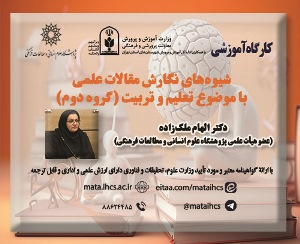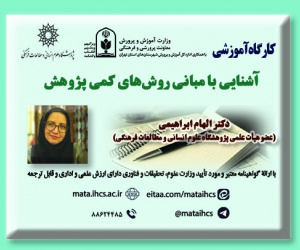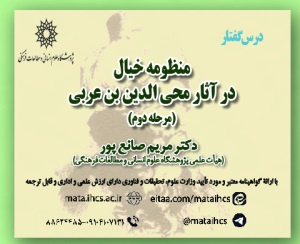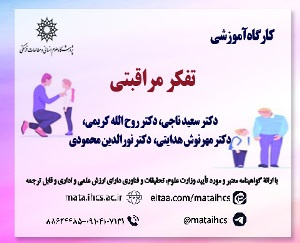از تقریر اشاعره تا مولوی درباره جوهر و عرض و خلق مدام (مقاله علمی وزارت علوم)
درجه علمی: نشریه علمی (وزارت علوم)
آرشیو
چکیده
اندیشه عدم ثبات ماسوی الله، شدن های متوالی و خلق مدام در تفکرات فلسفی، کلامی و عرفانی تعابیر متفاوت و مشابه داشته است. آشنایی مسلمانان با اندیشه های یونانی و هندی و تفسیر و تأویل ایشان و عرفای مسلمان از آیات قرآن کریم، باورهای متفاوتی را در فرهنگ دینی و عرفانی به جای گذاشته است. مفهوم صیرورت، در بحث معرفت الوجودی متکلّمان اشعری در قالب قاعده «العَرَضُ لایَبقی زَمانَین» به نفی علاقه علّی و اثبات قیّومیّت مطلق خداوند می انجامد. مولوی ضمن تأثیرپذیری از این قاعده، اندیشه مبتنی بر مشرب عارفانه خود را به مخاطبان خود انتقال می دهد و علاوه بر اعراض، جواهر را نیز در حال تبدّل دانسته، اصل و حقیقت آن ها را امر واحدی می بیند که لحظه به لحظه تجلّی دیگرگونه ای دارد. در باور وی، مراتب و اطوار وجود، در سیر و توالی آنات، وجودی جدید را پس از نابودی تجربه می کنند و در عین حال تمایزی با آن ندارند و اندیشه وحدت وجود، تجلّی و معیّت حق را به میان می آورند. این مقاله بر آن است تا با روش توصیفی-تحلیلی، تلقّی متکلّمان اشعری و دریافت عارفانه مولوی جلال الدّین را درباره این قاعده تبیین کند.From Ash'arites to Mowlavi about the Substance and Accident and Perpetual Creation
The idea of instability of creatures, successive becoming, perpetual creation in philosophical, theological and mysticism thoughts has had different and similar interpretation. Muslim theologians familiarity with Greek and Indian thoughts and mystic explanations and interpretations of Quran have left behind different believes in religious and mystical culture. The concept of becoming, in the discussion of the knowledge of the universe of Ash'arite's theologians in the form of the rule: "The accident doesn’t remain in two moments" leads to rejection of causal connections and proving God's absolute authority. Mowlavi teaches to his audiences his thoughts based on his mystical method while he accepts the impact from this rule. He also considers substances to be changing and sees their origins and truth as the Unity which has a different manifestation, moment by moment in addition to accidents. In his belief, levels of existence experience new existence after non-existence in succession of instants and at the same time they are not different from the Unity and they bring up idea of Unity of existence, manifestation and with-ness of God. This article intends to explain how Ash'arite's theologians and Mowlavi Jalal al-Din thought about the concept by analytical-descriptive method






